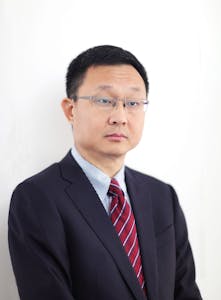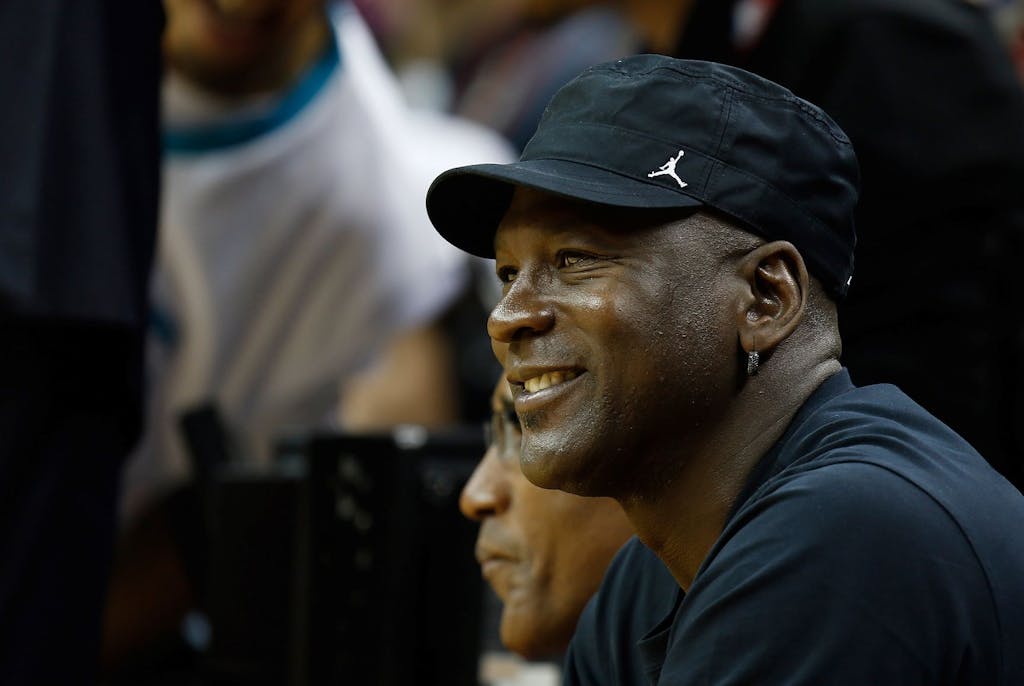 Professional athletes and brand owners should carefully reconsider how to protect their market value in China, the single largest retail market in the world, in the wake of the recent Chinese court ruling on a decade-long legal battle between retired US basketball star Michael Jordan and Chinese sportswear manufacturer Qiaodan Sports.
Professional athletes and brand owners should carefully reconsider how to protect their market value in China, the single largest retail market in the world, in the wake of the recent Chinese court ruling on a decade-long legal battle between retired US basketball star Michael Jordan and Chinese sportswear manufacturer Qiaodan Sports.
On December 30, the long-running legal battle finally came to an end, with a judgement rendered by the Shanghai No. 2 Intermediate People’s Court.
Qiaodan Sports, based in Quanzhou City, Fujian Province, was incorporated on June 28, 2000. The first part of its name, “Qiaodan”, is the generally accepted Chinese transliteration of “Jordan”. Qiaodan Sports has registered more than seventy trademarks in connection with “Qiaodan”, the Chinese characters for “Qiaodan” (乔丹), the number “23” (Jordan’s jersey number at the Chicago Bulls), and the Chinese transliteration for “Jeffery” (杰佛里), the name of Jordan’s son.
Qiaodan Sports became a successful firm in China and was close to an IPO in 2011, although this was paused. It was around that time that Michael Jordan began to take legal action against the company. He engaged two major Chinese law firms to represent him, and they offered three approaches. The first was to submit applications to the relevant administrative authorities to annul the trademarks registered by Qiaodan Sports. The second was to file a claim against Qiaodan Sports for “unfair competition”, a common approach in Chinese litigation for similar matters. The third approach was designed and implemented by our firm, JunHe. This was a more traditional approach, but ultimately decisive: build the case based on Qiaodan Sports’ infringement of Jordan’s naming rights, or, more precisely, Jordan’s right to permit another person’s use of his name (or, in this case, the Chinese transliteration thereof).
The first route proved costly, time-consuming, and unfruitful. Since 2012, Jordan initiated 78 applications to annul relevant trademarks registered by Qiaodan Sports. Almost all were rejected after a time-consuming process, beginning with a hearing before the PRC Trademark Review Committee, whose decision was appealed to the Beijing No. 1 Intermediate People’s Court, and then to the Beijing High People’s Court.
After successful appeals by Qiaodan, Jordan continued the battle by applying for a retrial before the Supreme People’s Court, the highest court in the country. This court denied all of Jordan’s petitions except for a few. According to an announcement dated April 8, 2020, Qiaodan Sports still owns 74 “Qiaodan”-related trademarks, which are not subject to any further challenge.
The second approach, unfair competition litigation, is often used by famous brand owners against competitors who try to borrow or free-ride on their brands by using names or marks resembling them. It is usually considered the most effective course of action in such cases.
However, to establish an unfair competition case, it must be established that the free-riding acts caused confusion between the products of the famous brand and the free-riding brand. Jordan’s name was inappropriately used by Qiaodan Sports, but as an individual rather than a commercial entity Jordan does not make any product competing with the products of Qiaodan Sports. Therefore, he cannot raise a cognizable claim against Qiaodan Sports for unfair competition. An individual is generally not eligible to be protected by PRC law against unfair competition.
The third approach, seeking protection of naming rights, was also time-consuming, but in the end was successful. Jordan instructed JunHe to try to annual the trademarks claimed by Qiaodan and also to proceed with our recommended approach – requesting the court to hold Qiaodan Sports’ use of “Qiaodan” as an infringement of Jordan’s naming rights, and to order Qiaodan Sports to cease and desist from such infringement.
It was not clear that this strategy would work, as Chinese law is silent on the protection of Chinese transliterations of foreign individuals’ names. There was also uncertainty arising from the balance between the protection of a naming right and the protection of registered trademarks.
Challenging the trademarks was not likely to achieve favourable results as, under Chinese law, there is a five-year statute of limitations governing the relevant party’s time to challenge a trademark. This had elapsed for most trademarks when Jordan decided to take action against Qiaodan Sports. Even if any challenge succeeded, Qiaodan Sports would still be entitled to use other unchallenged trademarks.
If, however, the court could be persuaded that the protection of a personal naming right overweighs protection of a trademark, one binding judgment could resolve all the problems. This was not an easy argument to make.
JunHe made the following two core arguments before the Shanghai No. 2 IPC in support of Jordan’s request:
- “Michael Jordan” is the name of a world-renowned basketball player, always referred to as “Qiaodan” in China. We collected more than 3,000 examples of news reports referring to Jordan as “Qiaodan” since 1984. We also provided market expert reports to show that between 68.1 per cent and 85 per cent of Chinese interviewees would think of Michael Jordan when hearing “Qiaodan”, compared to a mere 14.5 per cent to 24 per cent who would think of Qiaodan Sports. Roughly 78.1 per cent to 93.5 per cent of consumers of Qiaodan Sports believed the “Qiaodan” products they bought were somehow linked to Jordan. Qiaodan Sports obviously misled Chinese consumers and infringed Jordan’s naming rights.
- Qiaodan Sports also registered “23”, as well as “Marcus Jordan” and “Jeffery Jordan”, the names of Jordan’s sons. The ill intent of infringement was thus evident.
On December 30, 2020, the Shanghai No. 2 IPC ruled, accepting our core arguments, that Qiaodan Sports had infringed the Chinese translation of Michael Jordan’s naming rights. It ordered, among other things:
- Qiaodan Sports to apologise to Jordan.
- Qiaodan Sports to stop using “Qiaodan” as a tradename.
- Qiaodan Sports to stop using “Qiaodan”-related trademarks; and for trademarks registered for more than five years, Qiaodan Sports must clearly distance the trademark from Jordan every time they are used.

Worthy of study
This case is a landmark in many respects and worthy of study by the sports industry for several reasons.
First, China has overtaken the US as the world’s largest retail market, with retail sales reaching more than $5.6tn (€4.6tn) in 2019. It would be unwise to overlook the market potential of 1.4 billion consumers with a GDP per capita of $10,000.
Second, it is not uncommon for foreign operators to see Chinese companies using the transliteration of their names to mislead local consumers.
Third, with the new PRC Civil Code coming into force this year – an extensive piece of new legislation covering contract, property and tort liability law, among other areas – which strengthens the protection of transliterations of foreign names, we are confident that the kind of claim we made on behalf of Jordan will be accepted by other Chinese courts.
Some overseas observers may still be unsatisfied, or even surprised, at the reluctance of Chinese courts to protect their brands further. But in our view the Qiaodan case should be considered a stepping-stone towards greater IP protection in China. It is also worth considering how such a case would have been viewed in China. On one side there is a Chinese company who pays more than $250m in tax in the country in a single year, and has thousands of employees and partners who may suffer from the prohibition against using “Qiaodan”. On the other side is a foreign basketball player who probably had not paid a single dollar to the Chinese government’s treasury nor contributed, at least directly, to Chinese society’s prosperity. In this context, the Chinese court’s decision should be considered a relatively impartial one and one that shows a desire by courts to improve the business environment in China.
Another thing for overseas operators to consider is that this decision could work against them, as well as in their favour. If a foreign company’s registered trademark infringes a Chinese personal name, a similar claim could be brought against that company and be upheld by a Chinese court. Although a remote risk, professional athletes and brand owners are advised to take it into consideration to protect their market value.
It is always advisable to take pre-emptive measures in regards to protecting IP. Despite the successful result of this case, it was very time-consuming and costly. Even with the decision, Zhongqiao Sports – the new name of Qiaodan Sports – is still the proprietary owner of many “Qiaodan”-related trademarks. This could have been avoided, in theory, if there had been a prior application by Jordan for the “Qiaodan” trademarks, or a filing of objections within five years after Qiaodan Sports registered a relevant trademark.